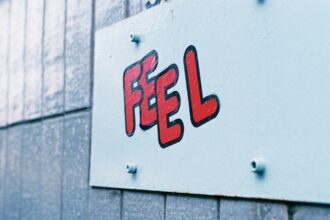Depersonalization and derealization anxiety are complex psychological phenomena that can leave you feeling detached from yourself or your surroundings. When you experience depersonalization, you may feel as though you are an observer of your own life, as if you are watching yourself from a distance. This sensation can be disorienting and unsettling, making it difficult to connect with your thoughts, emotions, or even your physical body.
On the other hand, derealization involves a sense of unreality regarding your environment. You might perceive the world around you as strange, dreamlike, or distorted, leading to feelings of confusion and fear. These experiences can be triggered by various factors, including stress, trauma, or anxiety.
While they can occur in isolation, they often manifest together, creating a profound sense of unease. Understanding these conditions is crucial for recognizing their impact on your mental health and well-being. The feelings of detachment can be alarming, leading you to question your sanity or reality itself.
It’s essential to acknowledge that these experiences are not uncommon and can be addressed with the right support and strategies.
Key Takeaways
- Depersonalization and derealization anxiety is a mental health condition characterized by feeling detached from oneself and the surrounding environment.
- Symptoms of depersonalization and derealization anxiety include feeling like an outside observer of one’s thoughts and actions, and experiencing a sense of unreality or detachment from the world.
- Causes of depersonalization and derealization anxiety may include trauma, stress, anxiety, and certain mental health disorders.
- Depersonalization and derealization anxiety can affect daily life by causing difficulties in concentration, memory, and emotional responsiveness.
- Diagnosing depersonalization and derealization anxiety involves a thorough evaluation of symptoms and ruling out other potential causes.
Symptoms of Depersonalization and Derealization Anxiety
The symptoms of depersonalization and derealization anxiety can vary widely from person to person, but they often share common threads. You may find yourself feeling disconnected from your thoughts or emotions, as if they belong to someone else. This can lead to a sense of numbness or emotional flatness, making it challenging to engage with the world around you.
Additionally, you might experience physical sensations that feel foreign or unfamiliar, such as a lack of control over your body or a feeling of being outside of yourself. Derealization symptoms can manifest as a distorted perception of time and space. You may notice that familiar places seem strange or unrecognizable, or that people appear as if they are in a fog.
This altered perception can create a sense of anxiety and fear, as you struggle to reconcile your experiences with reality. Other symptoms may include difficulty concentrating, memory lapses, and heightened sensitivity to sensory input. Recognizing these symptoms is the first step toward understanding what you are experiencing and seeking appropriate help.
Causes of Depersonalization and Derealization Anxiety

The causes of depersonalization and derealization anxiety are multifaceted and can stem from various sources. One common trigger is overwhelming stress or trauma. When faced with intense emotional pain or distressing experiences, your mind may resort to these dissociative mechanisms as a coping strategy.
This response can be particularly prevalent in individuals who have experienced significant life changes, such as the loss of a loved one, abuse, or severe anxiety. Additionally, certain mental health conditions can contribute to the development of these symptoms. Anxiety disorders, depression, and post-traumatic stress disorder (PTSD) are often linked to episodes of depersonalization and derealization.
Substance use can also play a role; for instance, the use of hallucinogenic drugs may induce feelings of detachment. Understanding the underlying causes is essential for addressing these experiences effectively and finding ways to manage them.
How Depersonalization and Derealization Anxiety Affects Daily Life
| Impact Area | Effects |
|---|---|
| Work/School | Difficulty concentrating, decreased productivity, impaired performance |
| Social Interactions | Feeling disconnected, difficulty forming and maintaining relationships |
| Emotional Well-being | Increased anxiety, depression, feelings of detachment |
| Physical Health | Fatigue, sleep disturbances, headaches, muscle tension |
| Everyday Tasks | Difficulty completing simple tasks, feeling overwhelmed |
Living with depersonalization and derealization anxiety can significantly impact your daily life. You may find it challenging to engage in social situations or maintain relationships due to feelings of disconnection. The fear of experiencing these symptoms in public can lead to avoidance behaviors, isolating you from friends and family.
This withdrawal can exacerbate feelings of loneliness and depression, creating a cycle that is difficult to break. Moreover, your ability to perform daily tasks may be compromised. Simple activities like going to work, attending school, or even running errands can become overwhelming when you feel detached from reality.
Concentration difficulties may hinder your productivity, leading to frustration and self-doubt. The constant battle with these symptoms can leave you feeling exhausted and drained, making it essential to seek support and develop coping strategies that work for you.
Diagnosing Depersonalization and Derealization Anxiety
Diagnosing depersonalization and derealization anxiety typically involves a comprehensive evaluation by a mental health professional. During this process, you will likely discuss your symptoms in detail, including their frequency, duration, and impact on your daily life. It’s important to provide as much information as possible about your experiences so that the clinician can make an accurate assessment.
In some cases, standardized questionnaires or assessments may be used to gauge the severity of your symptoms. The clinician will also consider any underlying mental health conditions that may be contributing to your experiences. A thorough diagnosis is crucial for developing an effective treatment plan tailored to your specific needs.
Treatment Options for Depersonalization and Derealization Anxiety

Treatment options for depersonalization and derealization anxiety vary depending on the severity of your symptoms and any underlying conditions. Psychotherapy is often the first line of treatment. Cognitive-behavioral therapy (CBT) has shown promise in helping individuals reframe their thoughts and develop coping strategies for managing anxiety.
Through therapy, you can explore the root causes of your experiences and learn techniques to ground yourself in reality. In some cases, medication may be prescribed to help alleviate symptoms associated with anxiety or depression. Antidepressants or anti-anxiety medications can provide relief for some individuals, but it’s essential to work closely with a healthcare provider to determine the best course of action for your situation.
Combining therapy with medication may yield the most effective results in managing depersonalization and derealization anxiety.
Coping Strategies for Depersonalization and Derealization Anxiety
Implementing coping strategies can be beneficial in managing depersonalization and derealization anxiety on a day-to-day basis. Grounding techniques are particularly effective; these methods help anchor you in the present moment when feelings of detachment arise. For instance, focusing on your breath or engaging in mindfulness exercises can help bring awareness back to your body and surroundings.
Another useful strategy is maintaining a journal where you document your thoughts and feelings. Writing about your experiences can provide clarity and help you process what you’re going through. Additionally, engaging in physical activities such as yoga or exercise can promote a sense of connection between your mind and body, reducing feelings of disconnection over time.
The Connection Between Depersonalization and Derealization Anxiety and Other Mental Health Conditions
Depersonalization and derealization anxiety often coexist with other mental health conditions, creating a complex interplay that can complicate diagnosis and treatment. For example, individuals with anxiety disorders frequently report episodes of depersonalization as a response to heightened stress levels. Similarly, those with PTSD may experience dissociative symptoms as a way to cope with traumatic memories.
Understanding this connection is vital for developing an effective treatment plan that addresses all aspects of your mental health. By recognizing how these conditions interact, you can work with mental health professionals to create a comprehensive approach that targets both the dissociative symptoms and any underlying issues contributing to your anxiety.
How to Support Someone with Depersonalization and Derealization Anxiety
If someone close to you is experiencing depersonalization and derealization anxiety, offering support can make a significant difference in their journey toward healing. Start by listening without judgment; allow them to express their feelings openly without fear of invalidation. Acknowledging their experiences is crucial; it helps them feel understood and less isolated in their struggles.
Encourage them to seek professional help if they haven’t already done so. You might offer to accompany them to appointments or assist them in finding resources that could be beneficial. Additionally, being patient is key; recovery takes time, and understanding their journey will foster trust in your relationship.
Self-Care Tips for Managing Depersonalization and Derealization Anxiety
Self-care plays an essential role in managing depersonalization and derealization anxiety effectively. Prioritizing sleep is crucial; lack of rest can exacerbate feelings of detachment and anxiety. Establishing a consistent sleep routine can help regulate your body’s natural rhythms and improve overall well-being.
Incorporating relaxation techniques into your daily routine can also be beneficial. Practices such as meditation, deep breathing exercises, or progressive muscle relaxation can help reduce stress levels and promote a sense of calmness.
Seeking Professional Help for Depersonalization and Derealization Anxiety
If you find that depersonalization and derealization anxiety are significantly impacting your life, seeking professional help is crucial. A mental health professional can provide guidance tailored specifically to your needs, helping you navigate through these challenging experiences. Therapy offers a safe space for exploration and healing while equipping you with tools to manage symptoms effectively.
Remember that reaching out for help is a sign of strength rather than weakness. You deserve support on this journey toward understanding yourself better and reclaiming your sense of reality. With the right resources and strategies in place, it is possible to find relief from the distressing effects of depersonalization and derealization anxiety.
In exploring the complexities of depersonalization and derealization anxiety, it’s essential to consider various perspectives and insights that can deepen our understanding of these conditions.
For a comprehensive overview, you can read more about it by visiting Unplugged Psychology. This resource provides valuable information that can help both sufferers and mental health professionals better navigate the challenges associated with depersonalization and derealization.
LEARN MORE About Unmasking the Mysteries Behind Depersonalization and Derealization
FAQs
What is depersonalization and derealization anxiety?
Depersonalization and derealization anxiety are dissociative disorders characterized by feeling detached from oneself (depersonalization) and feeling detached from the world or surroundings (derealization). These experiences can be distressing and may interfere with daily functioning.
What are the symptoms of depersonalization and derealization anxiety?
Symptoms of depersonalization and derealization anxiety may include feeling like an outside observer of one’s thoughts, feelings, and actions (depersonalization), feeling like the world is unreal or distorted (derealization), emotional numbness, and a sense of detachment from one’s body.
What causes depersonalization and derealization anxiety?
The exact cause of depersonalization and derealization anxiety is not fully understood, but it is believed to be related to a combination of biological, psychological, and environmental factors. Trauma, stress, anxiety, and certain psychiatric disorders may contribute to the development of these symptoms.
How is depersonalization and derealization anxiety diagnosed?
Depersonalization and derealization anxiety are diagnosed based on a thorough evaluation by a mental health professional, including a detailed assessment of symptoms, medical history, and any underlying psychiatric conditions. There are no specific tests for these disorders, so diagnosis is based on clinical judgment.
What are the treatment options for depersonalization and derealization anxiety?
Treatment for depersonalization and derealization anxiety may include psychotherapy, such as cognitive-behavioral therapy (CBT) or dialectical behavior therapy (DBT), to help individuals understand and manage their symptoms. Medications, such as antidepressants or anti-anxiety medications, may also be prescribed in some cases.
Can depersonalization and derealization anxiety be cured?
There is no specific cure for depersonalization and derealization anxiety, but many individuals can experience significant improvement in their symptoms with appropriate treatment and support. It is important for individuals to work closely with mental health professionals to develop a personalized treatment plan.




